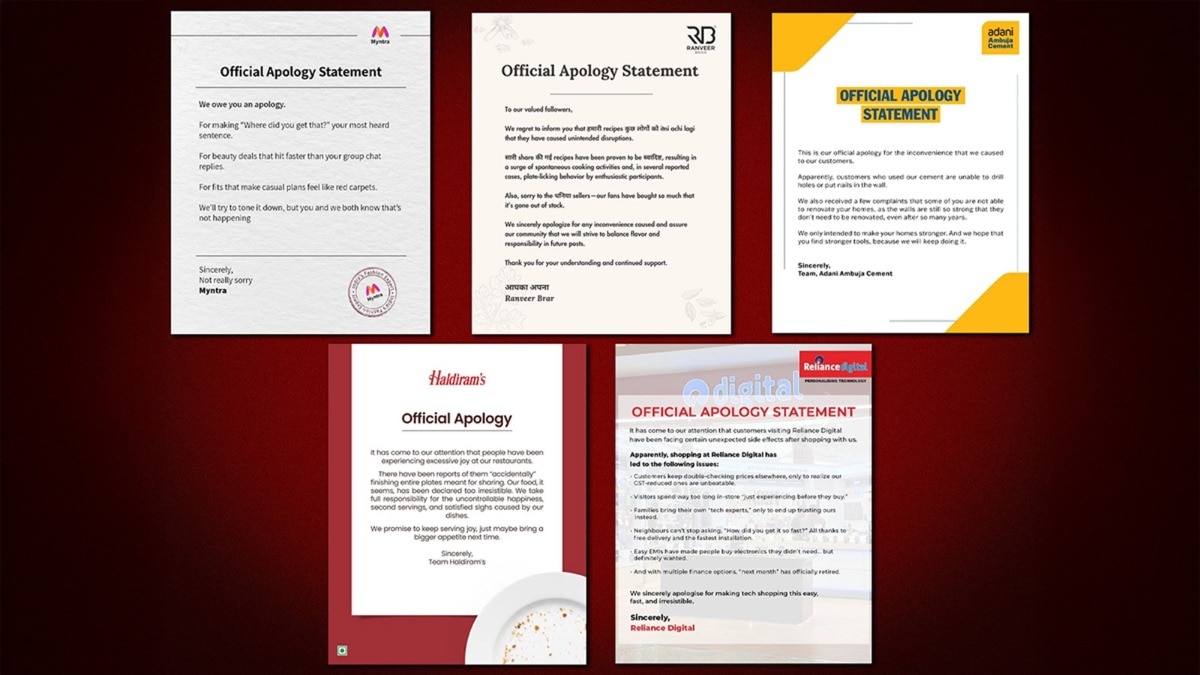India is in the midst of an apology frenzy. From Skoda and T-Series to Reliance Digital, Adani Ambuja Cement, Haldiram’s, and even chef Ranveer Brar, it seems like everyone has something to apologise for. But here’s the twist: these big names aren’t apologising for scandals or mistakes, they’re apologising for being too good. Welcome to the rise of the apology advertisement, where brands apologise for not meeting your expectations.
In an unexpected trend sweeping through India, major brands and even celebrities are issuing public apologies, but not for the usual reasons. There have been no scandals or controversies; instead, companies and figures are apologising for delighting their customers a little too much. This wave of “apology advertisements” is gaining momentum, with brands using corporate-style letters to issue tongue-in-cheek apologies for their products being too addictive or causing too much joy.
It all started with Skoda and quickly snowballed, with giants like T-Series, Reliance Digital, Adani Ambuja Cement, Haldiram’s, Keventers, and even Banana Leaf jumping on the bandwagon. Adani Ambuja Cement’s apology letter humorously explained that customers who used its cement found themselves unable to drill holes or put nails in their walls. Chef Ranveer Brar took to Instagram, stating, “We regret to inform you that hamaari recipes kuch logo ko itni achchi lagi that they have caused unintended disruptions. Saari share ki gayi recipes have proven to be swadisht, resulting in a surge of spontaneous cooking activities…”
This trend, which started in the Philippines last year, has now exploded globally, blending formal corporate language with self-deprecating humour. The letters, complete with subject lines like “Re: Unintended Customer Delight” and bullet points listing “regrets” over addictive products, have flooded social media feeds, turning the idea of an apology on its head.
Some believe the trend humanises brands, turning their strengths into playful “flaws.”
However, not everyone is a fan. Critics argue that apologies should hold weight and be reserved for when brands genuinely mess up, not when they’re just being “too awesome.” One LinkedIn user said, “Apologies should mean something. They’re for accountability, not attention.”


